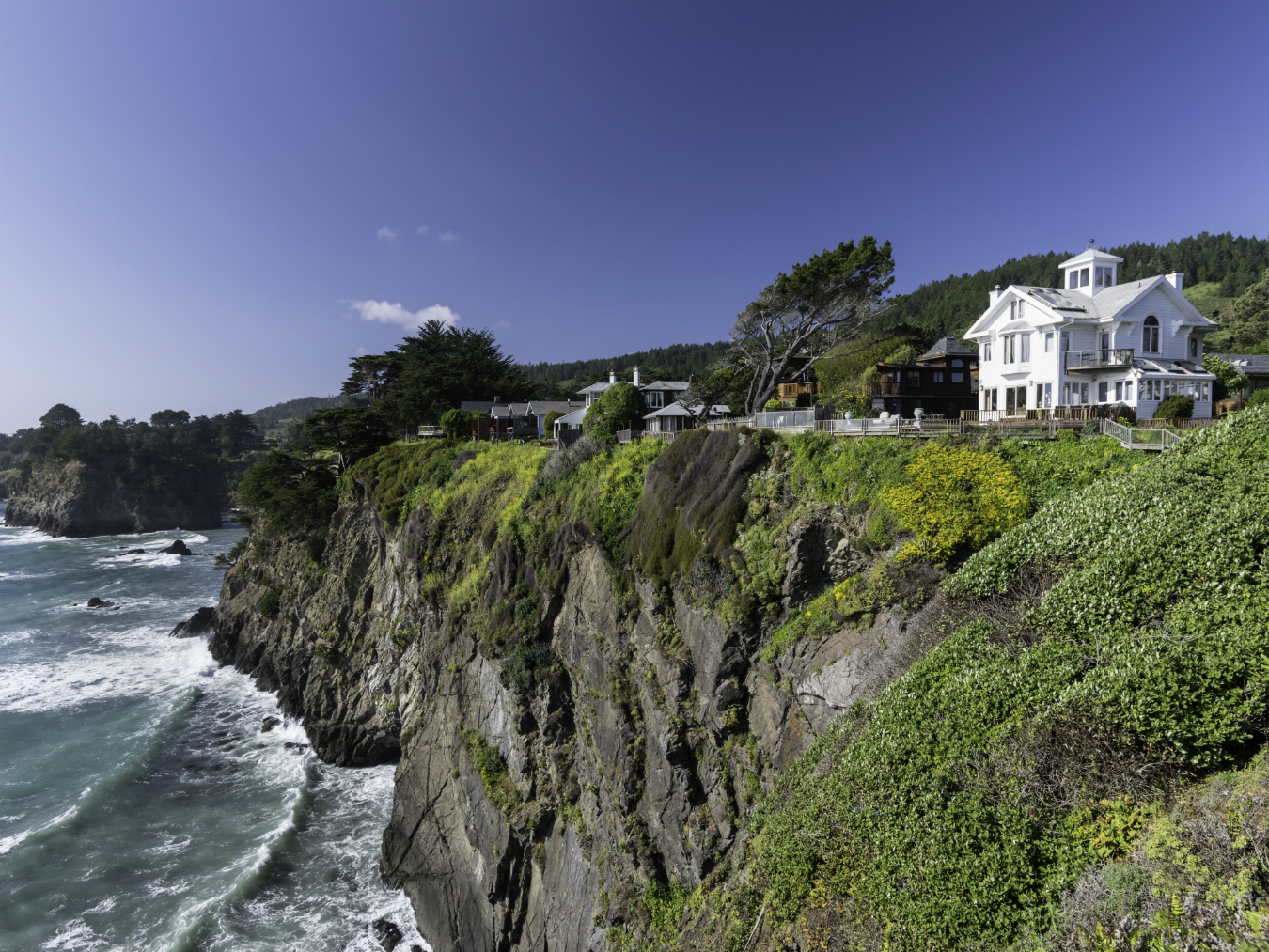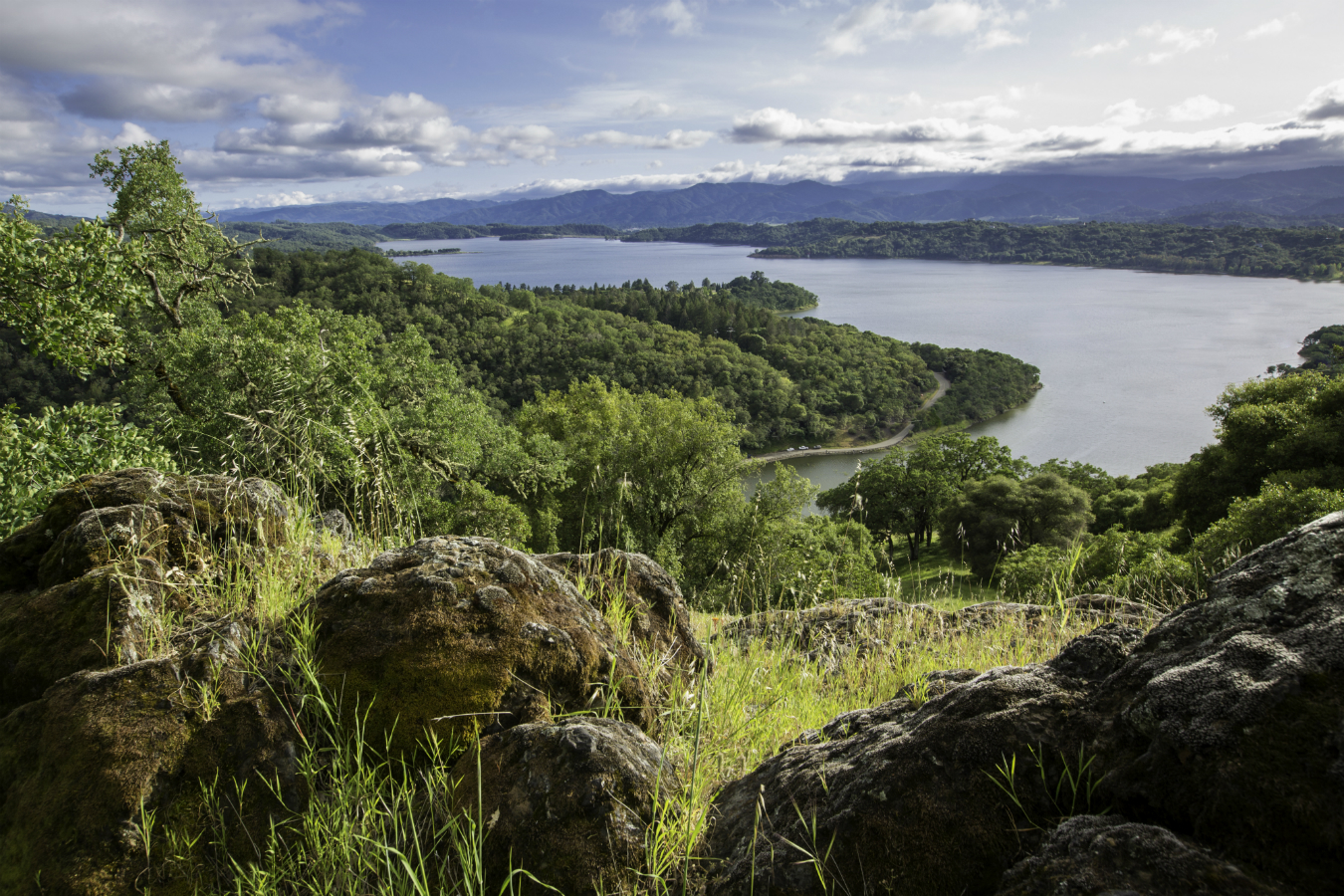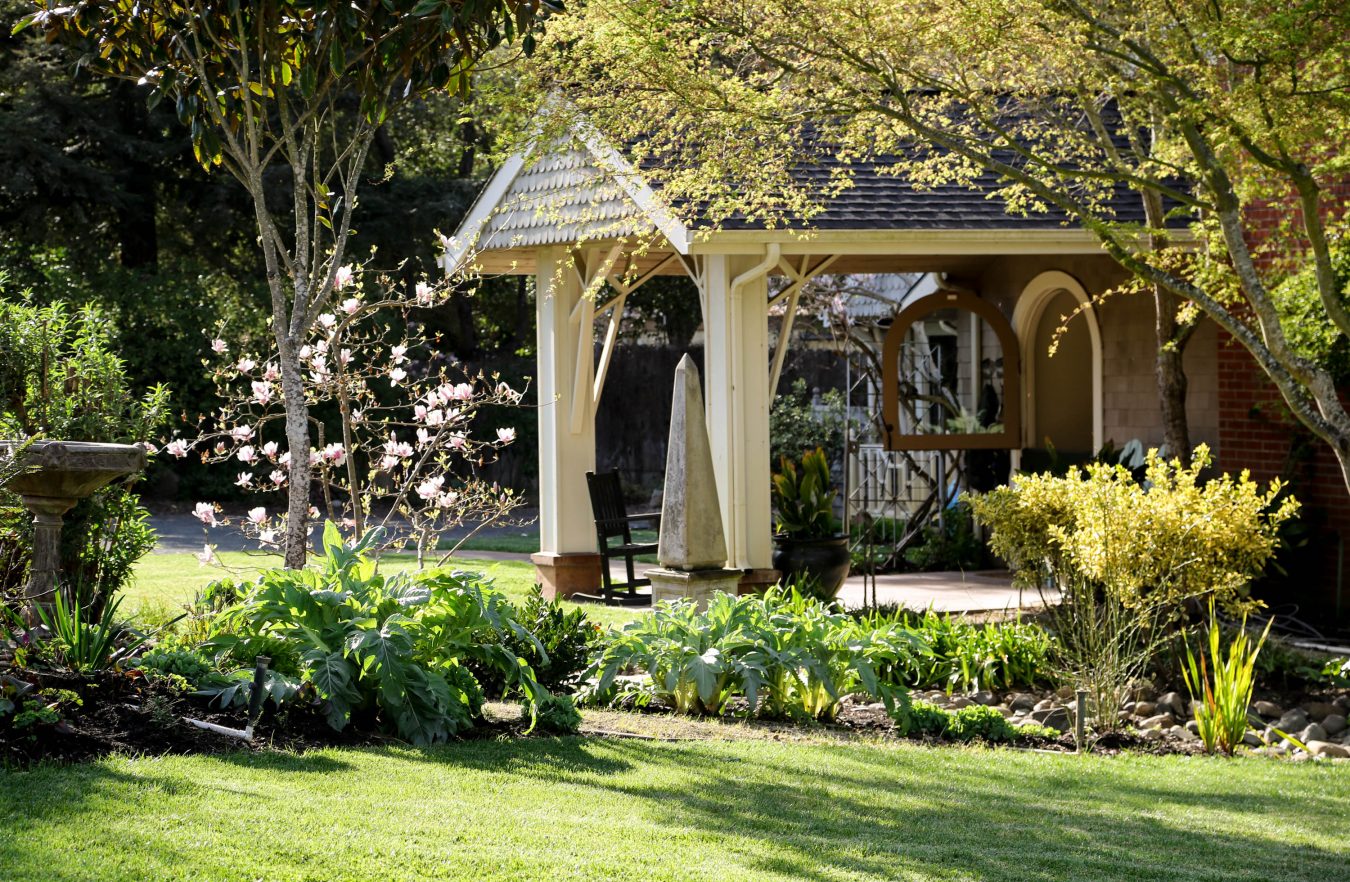There’s a bend in the road, and then the tree cover becomes thicker, rays of sunlight just peeking through. The birds’ chirps can be faintly heard, and Highway 128 curves even tighter. Passing into Mendocino County, just two and a half hours north of San Francisco, the setting turns remarkably still. In a state with a population larger than all of Canada’s, it’s almost unbelievable to find an area so sparsely occupied. Round green mounds in the distance are dotted with sheep, old oak trees wrap around the highway, and descending into Anderson Valley, phones go, remarkably, without service.
Clocking in at just over 10,000 square-kilometres, Mendocino County’s terrain is made up of wine country in the interior, the Pacific Ocean to the west, and in the north, the ancient redwood forests. There are no tech start-ups here, no hip coffee shops; in fact, one is hard-pressed to find even a supermarket outside of the county’s largest town, Ukiah. But its isolation has long been its main draw, going back to the 1970s, when the counter-culture population began leaving San Francisco in search of land to farm and foster. Their presence is still seen today: back-to-the-land communes are dotted throughout the county, and you’re almost guaranteed to see a vintage Volkswagen bus on Highway 128.
Yorkville Cellars, located at the southern tip of Anderson Valley as you enter Mendocino, shows how the spirits of ‘70s simplicity continues. The wood-planked tasting room sits on an idyllic vineyard, one of the earliest to be certified organic, in 1986—long before it was trending. The wines are truly representative of the land: an unpretentious Petit Verdot rosé can be sipped on the patio as the sheep, tended by their dutiful shepherd, groom the weeds between vines.
Further down the highway, in the small town of Boonville, Pennyroyal Farm extends the connection between wine, land, and animals. Headed by Sarah Cahn Bennett and Erika Scharfen, who met in a goat husbandry class during their graduate studies at University of California Davis, the 23-acre vineyard, goat and sheep farm, and cheese-making facilies are impressive and ambitious. “We wanted to reduce the amounts of fossil fuel that we use here,” Bennett explains, pointing to the solar panels on the large barn that houses the animals. Massive wind turbines placed within the vineyards also fuel the facility, which produces a small but delicious smattering of house-made cheeses as well as pinot noir, rosé, and sauvignon blanc.
The cheeses, made from both sheep and goat milk, are all named using the native argot language, Boontling. Said to be a mix of Gaelic and Pomoan, the language is almost extinct (though children in local schools still have it in their curriculum), and is special to the town of Boonville. Bollie’s Mollies (mollies is a cheeky Boontling term for breasts), is a fresh goat cheese that is grassy, smooth, and silky—a wonderful reflection of what is happening on the property. Velvet Sister, named after two historic Boonville sisters who were known for wearing all velvet, is a camembert-style cheese with a fuzzy exterior, wonderfully paired with the light rosé.
Lodging in Mendocino’s wine country can be found at The Madrones. Just off of Highway 128, the hotel pulls off that perfect Californian rustic luxury. The rooms—guest quarters as well as special suites at the back of the property—are each individually accented with stunning antiques that owner Jim Roberts has collected over the years. The Kitchen suite (in what used to be the owner’s home) is refined and comfortable. The beds are plush and fitted with the softest sheets (which are conveniently sold in the lobby), with French doors that open up to a private balcony. Plan on sleeping in.
Dinner is just another quick drive down the highway to The Bewildered Pig, where chef and co-owner Janelle Weaver presides over her small but powerful kitchen. Working with what she has in season, Weaver puts together meals that are uncomplicated and familiar while remaining exciting and challenging. The combination works; the food and setting is familial and friendly, which makes sense in such a small, tight community. “Sometimes we show up and there’s a duck on our porch,” Weaver laughs. It can be assumed that come that night, duck is on the menu.
For supper this particular early spring evening, first is a play on the devilled egg with umami-rich miso, followed by a warm few spoons of asparagus soup—the taste of the season. Rabbit with fresh pasta is artfully prepared and will even tempt some bunny lovers into savouring every last bit. Anderson Valley’s Panthea Winery & Vineyard Pinot Noir is so nuanced that it pairs perfectly well with just about anything, wine guides be damned.
A foray to the coast exposes another side of the county. Rough and wild waters surround the small town of Mendocino; this is where scenes of the 1980s television series Murder, She Wrote were filmed. The town offers your typical sightseeing and gift shopping, as well as a charming dive bar called Dick’s Place that, even at 2 p.m., is packed with locals.
Checking in at the Little River Inn, there is no lack of scenic ocean views. The cabin-style rooms look out over the water, and the waves crashing on the shore can be heard through the night. It’s the perfect place to relax before a visit the last treasure of the county: the great redwoods. Another windy drive up from the coast leads into the Montgomery Woods State Natural Reserve. The grove here at one time had the oldest tree in the world, and the ones that are still standing have been here for thousands of years. Getting out of the car, walking among these trees, it’s hard not to be in total awe of their beauty—in silence, far away from any cell phone tower, yet more connected then ever.













